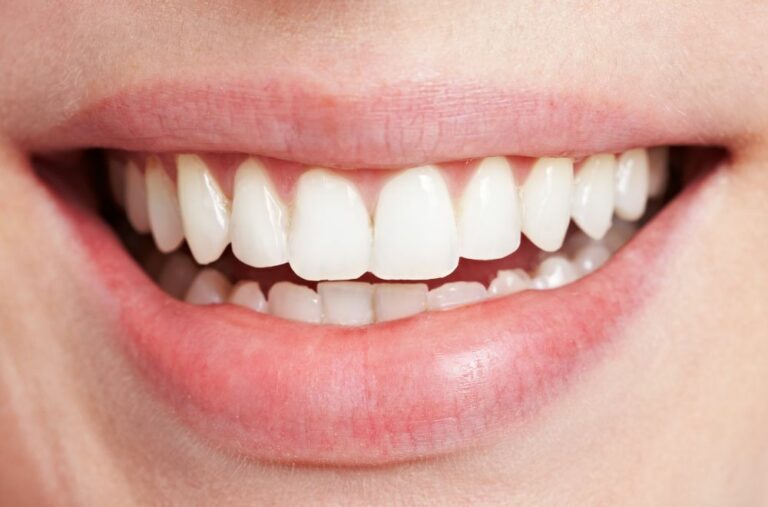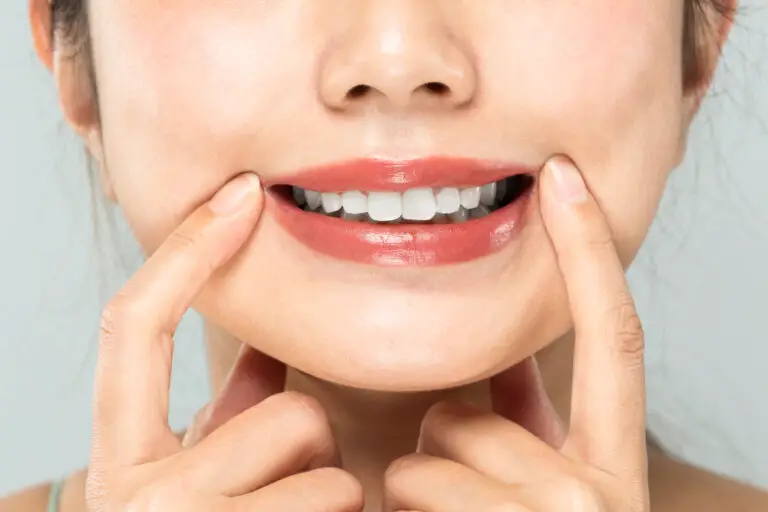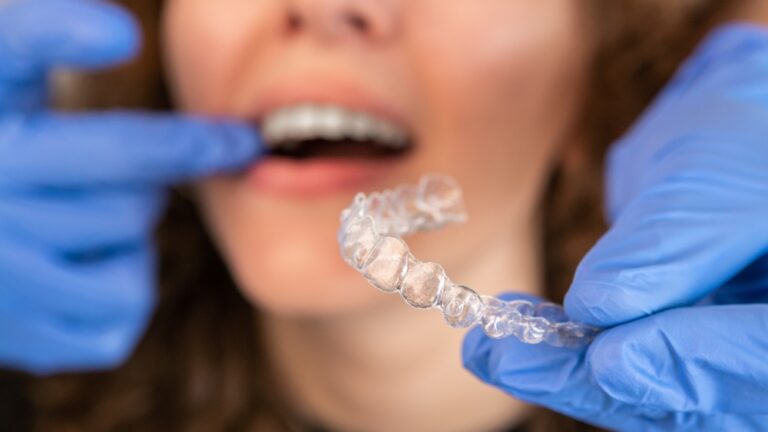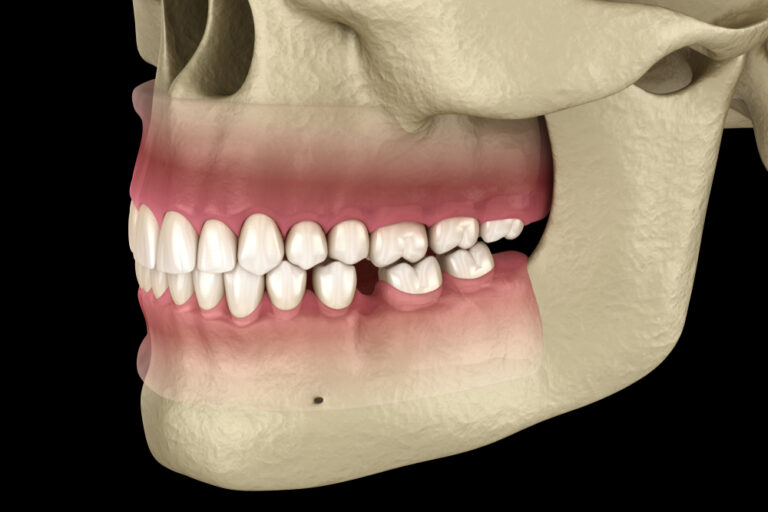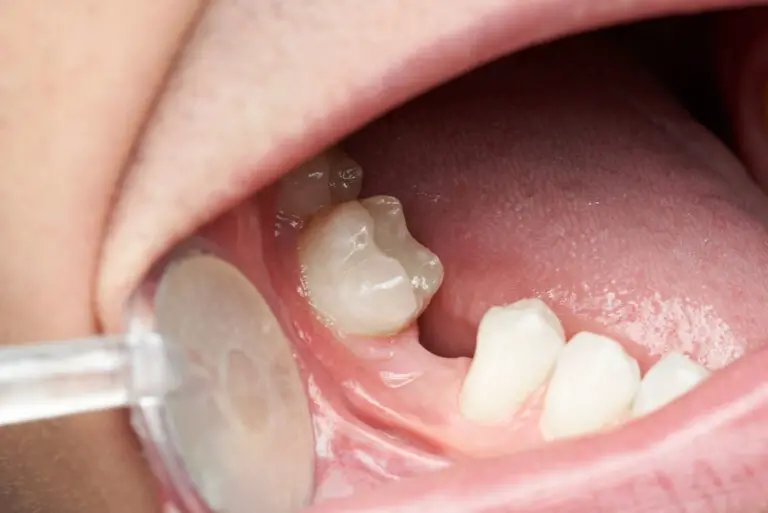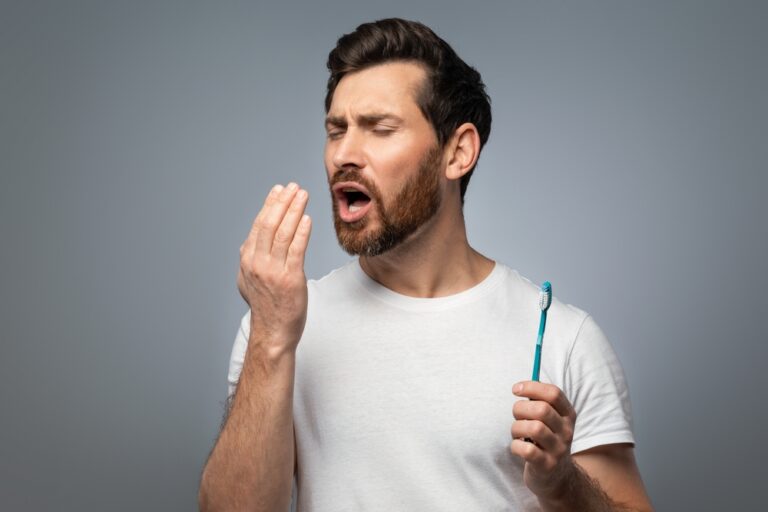Popcorn is a beloved snack food for many people. But some popcorn lovers worry if their favorite treat could be harming their gum health. This in-depth article explores whether crunching on popcorn can damage your gums, warning signs to watch for, and tips to enjoy popcorn safely even with sensitive gums.
Does eating popcorn damage gums?
To understand if popcorn poses risks for your gums, you first need to know a bit about gum anatomy and how chewing can impact gum tissue.
Gum basics: Structure and function
Your gums, also called gingiva, are part of the soft tissue lining the mouth. Gums consist of firm, pink tissue that surrounds the base of the teeth and covers the jawbone.
Healthy gums fit snugly around each tooth and provide a tight seal. The gingiva contains blood vessels, nerves, and connective tissue that anchors teeth firmly in their sockets.
Gums serve several important roles:
- Protect tooth roots and jawbone
- Prevent bacteria from entering tissues
- Hold teeth in place
- Limit irritation to tooth sockets
When gum tissue gets damaged, it can no longer adequately fulfill these protective functions. Teeth become loose, tooth sockets are exposed, and bacteria gain access leading to infections. So maintaining gum health is essential for preserving teeth.
Chewing mechanics and gum abrasion
Normally the gingiva can withstand the friction and pressure from chewing food. But certain foods with abrasive textures can injure gum tissue, especially if gums are already inflamed or diseased.
When you bite down, food pressed between the teeth scrapes across gum surfaces. Hard or sharp foods require more chewing force, increasing friction on gums. If the food has a coarse, gritty texture as well, it can literally grind away at the gingiva.
This is why crunchy foods with rough surfaces pose the most risks for gum abrasion. Common culprits include chips, pretzels, nuts, and seeds. So where does popcorn fit in?
Can popcorn alone damage healthy gums?
Popcorn kernels themselves do not appear to directly damage or infect healthy gum tissue if chewed occasionally.
However, popcorn hulls in particular can contribute to gingival issues when eaten frequently and aggressively. The main concern with popcorn is the abrasive outer hulls scratching or cutting the gums during chewing.
The hull is the tough bran layer enveloping the inner soft, starchy endosperm. In popcorn varieties, these outer hulls are thicker and more rigid than many other grains.
As you bite down on unpopped kernels, the hull edges press into gum tissue, creating friction. Over time, these minor abrasions can make gums tender and more vulnerable to harm.
So while plain popcorn may not severely injure strong, healthy gums, the constant minor trauma from hulls can pave the way for more serious issues.
Key risk factors for popcorn damaging gums
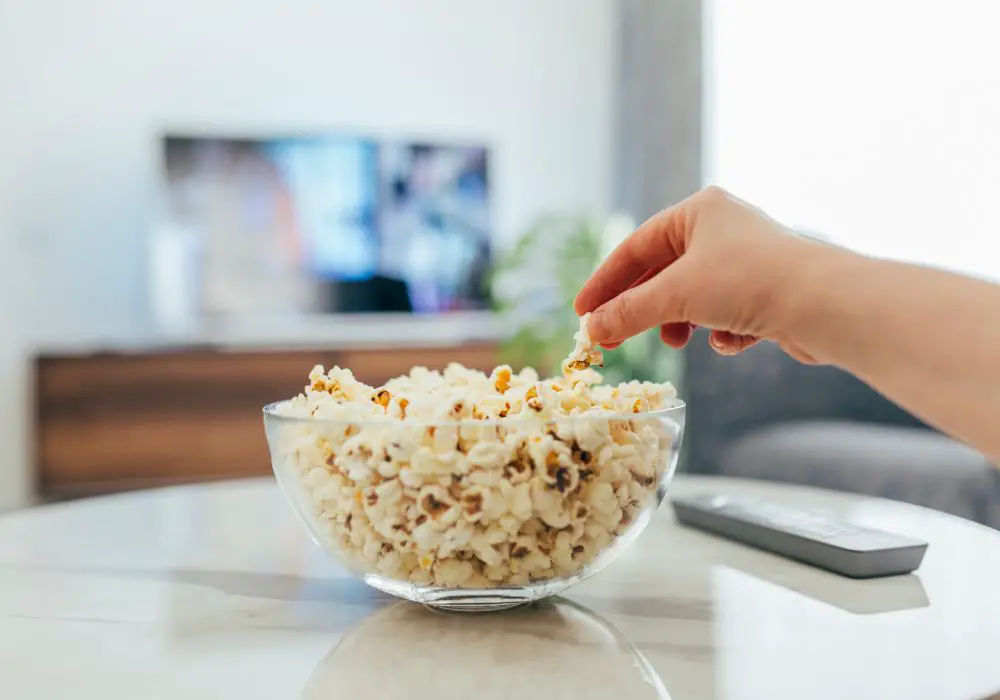
Several factors influence how severely popcorn abrasions might affect your individual gum health:
1. Existing gum disease
Popcorn poses little risk for most people with healthy gums. But those with pre-existing gum disease face greater dangers from eating popcorn frequently.
Gum disease makes gum tissue tender, swollen, and prone to bleeding – a condition called gingivitis. Gums already inflamed and infected will not stand up well to the added irritation of popcorn hulls.
In advanced cases, receding gums also have little gum tissue protecting roots. Hard popcorn hulls can directly grind away at unprotected root surfaces once gums recede.
So while popcorn alone won’t cause gum disease in most, it can rapidly worsen existing gum infections. The inflamed tissue is an easy target for abrasions leading to further disease progression.
2. Aggressive chewing habits
How aggressively you chew popcorn also affects how much friction those hulls create on your gums.
Gnashing kernels forcefully between your teeth drives the hull edges into your gums with greater pressure. More vigorous chewing also releases more inner pericarp grit that can grind gum tissue.
Gently nibbling popcorn minimizes the abrasive effects compared to chomping down hard. So chewing intensity directly influences hull damage. Those with bruxism who involuntarily clench popcorn kernels tightly are at particular risk.
3. Tooth and gum structure
Your natural tooth alignment and gum contours also impact how significantly popcorn can damage your gums. Those most at risk include:
- Crowded teeth – Teeth crowding creates tight spaces where more hull gets forced directly against gums.
- Jagged teeth – Sharp tooth cusps or broken edges act like blades slicing into gum tissue as you bite down.
- Thin gums – Minimal gum tissue gives less cushioning from popcorn hulls during chewing.
- Receding gums – gum loss around tooth roots removes protective barriers so hulls directly abrade root surfaces.
- Gum pockets – Deep spaces between gums and teeth trap hulls that constantly aggravate the area.
So gum and tooth anatomy that exposes more gum surfaces to popcorn hulls increases potential for damage.
4. Popcorn seasonings and toppings
Salty, spicy, acidic, and sugary flavorings on popcorn further irritate scratched or cut gum tissue. Oil and butter also provide a pathway for bacteria to enter broken gum surfaces.
Abrasions allow seasonings direct contact with gum membranes that lines mouth tissues. Any acidic, sugary or spicy components burn these injured areas.
Oily coatings like butter, margarine, and creamy flavorings trap oral bacteria. This allows infections to take hold in wounded gum spots and worsens irritation.
So while unflavored air-popped popcorn has lower risks, popular oily and salty popcorn varieties make hull damage worse.
5. Habitual popcorn eating
Occasional popcorn snacking reduces prolonged exposure of your gums to the hulls. But regular, daily popcorn consumption provides recurrent minor hull trauma that can accumulate over time.
Gums need periods of rest between exposures to recover. Chronic daily popcorn eating doesn’t allow adequate healing time. Eventually the abrasions weaken gum structure.
Think of it as similar to sandpaper on wood. An occasional rub barely affects the surface. But persistent sanding gradually erodes the structural integrity of the wood over time.
In the same way, habitual popcorn snacking slowly wears away gum foundations. So regular popcorn eaters face higher risks to their gums than occasional indulgences.
In summary, existing gum disease combined with forceful, frequent popcorn eating poses the greatest threat for significant gum damage. Those already battling gingivitis or other oral infections need to take extra precautions with popcorn.
But even healthy gums aren’t immune from issues if subjected to near constant battering from Rigid hulls. Let your gums rest and recover between popcorn snack sessions.
Signs popcorn may be damaging gums

Watch for these common symptoms indicating popcorn may be irritating your gums:
1. Gum bleeding when eating popcorn
One of the most telling signs of popcorn-related gum injury is bleeding from the gums when eating it. You may notice some blood on the popcorn, streaks of red in saliva, or pink-tinged tooth brushing after eating it.
Seeing blood means the hull abrasions have penetrated deep enough into gum tissue to reach the abundant blood vessels there. Any bleeding signals possible gum inflammation or damage in need of attention.
However, note that gums may also bleed due to vigorous brushing, hormonal changes, or using a new flossing method. So evaluate other factors too.
2. Gum pain when chewing popcorn
If your gums regularly hurt or feel sore, swollen, and tender when eating popcorn, pay attention. Just as you wouldn’t run with an injured ankle, painful gums indicate damage needing rest.
Dull throbbing or sharp gum pain while chomping down on popcorn points to irritation from the hulls. Healthy gums shouldn’t hurt from simply eating popcorn occasionally.
3. Increased gum recession
Watch for your gum line appearing to recede or pull away from some teeth with increased exposure of tooth roots after eating popcorn frequently.
While gum recession has many causes, the constant friction from popcorn abrasions can accelerate shrinking gums. Receding gums lose the protective buffer against popcorn hulls.
If you notice more tooth root surfaces visible along your gum line, consider reducing or avoiding popcorn to allow healing.
4. Swollen, puffy gums
Under a microscope, even minor popcorn hull injuries damage gum cell walls which then become inflamed. You may notice generalized enlarged, puffy looking gums after repeated popcorn chewing.
Swollen gums indicate possible low-grade repetitive injury from popcorn hulls irritating gum tissue faster than it can heal.
5. Sensitive teeth
If your teeth seem increasingly sensitive to hot or cold foods after eating popcorn, it could signal damaged gums no longer insulating tooth roots. Gum abrasions allow more direct temperature exposures.
Exposed dentin may also react to popcorn acids. So heightened tooth sensitivity warrants paying closer attention to your gums after popcorn.
6. Persistent bad breath
Scratches and tears on your gum surface from hulls provide ideal breeding ground for odor-causing bacteria. Popcorn also tends to stick around between teeth.
So if you notice bad breath persist even after brushing and flossing following popcorn eating, gum inflammation may be brewing.
7. Visible cuts or abrasions
With severe damage, you may actually see visible cuts, scratches or blisters along your gum lines after eating popcorn. While not common, it is a surefire sign of significant injury needing prompt attention.
Even tiny nicks in gum tissue provide pathways for bacteria to enter and infect. Don’t ignore obvious physical popcorn-related abrasions.
In most cases, limiting popcorn intake allows mild gum irritation to improve quickly. But recurring symptoms or bleeding warrant seeing a dentist promptly. They can assess damage severity and rule out other complicating factors.
Popcorn hull damage vs other dental risks
Beyond hull cuts, does popcorn also pose other oral health dangers? There are a few additional considerations:
Bacterial buildup
Like any food, leftover popcorn debris can harbor bacteria between teeth leading to decay if not removed by brushing and flossing. But other than potential abrasions, popcorn does not uniquely contribute to bacterial issues.
Flossing and appropriate brushing minimizes any bacterial issues from popcorn residue.
Potential allergens
In rare cases, people may be allergic to components in popcorn like hulless or mushroom varieties. This could cause gum swelling, but more likely manifests as mouth itching or skin reactions.
Choking hazards
Like nuts, hard unpopped kernels or big pieces could potentially pose a choking risk for young children unable to adequately chew pieces before swallowing.
But for adults, the main dental concern from popcorn remains the abrasive outer hulls. Any other issues simply require the same oral hygiene as other snack foods.
How to prevent popcorn damage to gums

You don’t necessarily need to eliminate popcorn from your snacking rotation due to gum risks. Try these tips for safer ways to enjoy popcorn without harming your gums:
1. Choose hull-free popcorn
Seek out hull-less popcorn varieties where the tough outer bran layers are breed to be thinner and soften during the popping process. The hulls then crumble away easily leaving less abrasive remnants.
Hulless options like mushroom popcorn have a pericarp that disintegrates when heated, minimizing gum trauma. Popcorn labeled “bite-sized” also typically indicates a hull-free variety.
Popcorn with lighter, thinner, more pliable hulls tends to cause less gum abrasions as well.
2. Remove unpopped kernels
Carefully sort through popped popcorn and discard any remaining hard, unpopped kernels. This eliminates their sharp outer hulls from rubbing against your gums.
You can also buy pre-popped popcorn where hard kernels have already been sifted out.
3. Pop it yourself
Air-popped or microwave popcorn allows you to control preparation conditions for less abrasive popcorn:
- Leave out unhealthy oils that can seep into hull cuts
- Remove unpopped kernels before eating
- Cook until fully popped without burnt pieces
- Adjust seasonings that won’t aggravate injured gums
Microwave bags specifically designed to elimate unpopped kernels work well too.
4. Go easy on seasonings
Avoid drowning popcorn in thick, sticky glazes that adhere to damaged gum spots. Any acute seasonings like citric acids or chili spices further irritate small lesions.
Use just enough light seasoning to enhance flavor without aggravating gums. A spritz of olive oil with a sprinkling of garlic powder or nutritional yeast makes for gum-friendlier popcorn.
5. Always rinse after eating
After popcorn snacking, gently swish cool water around your mouth to flush out any hull debris and food particles. Loose remnants easily wash away rather than sticking in gum crevices.
Finish with a quick teeth brushing to ensure your mouth is clean. The rinse and brush combo removes most irritants.
6. Chew gently
Make a conscious effort to chew popcorn in smooth motions without chomping and grinding. Softer chewing minimizes how forcefully hull edges press into your gums.
Letting popcorn softly melt in your mouth reduces friction. Alternate chewing sides to give each gum area breaks.
7. Treat any gum injuries
If you notice any signs of gum irritation like swelling or cuts, take a break from popcorn for a week or two. Use antiseptic mouth rinse to support gum healing after any popcorn eating.
See your dentist promptly if you experience repeated gum bleeding, pain, or damage after eating popcorn. Early intervention helps prevent lasting problems.
8. Maintain diligent oral hygiene
Keep gums healthy overall with daily brushing, flossing, and gum massages. Routine dental cleanings allow your dentist to monitor for any popcorn-related damage.
Strong, resilient gums can better endure occasional abrasions from popcorn hulls. Keep your gums in top shape as a buffer.
With some thoughtful precautions, you can still enjoy satisfying popcorn cravings without putting your gums at serious risk. But those with active gum disease should consider avoiding all popcorn.
Are other crunchy snacks safer for gums?

Popcorn hulls are quite rigid and abrasive compared to many other snack foods. What about alternatives?
Nuts
Most nuts have thinner, papery outer skins that flake off during chewing with less direct friction on gums. But some nut shells like almonds, pistachios, and hazelnuts still carry mild risks similar to popcorn.
Crackers
Refined flour crackers tend to quickly dissolve into a soft paste that won’t scrape gums like hulls. But some crispy crackers with seeds or grains embedded offer more textured chewing that poses slight abrasion potential.
Chips
Potato chips or similar crunchy snacks fracture into small pieces on chewing that pass easily over gums with minimal friction. But jagged chip edges could potentially scratch if wedged against gums.
Fruits and vegetables
While produce is abrasion-free, their acidic nature can erode gum tissue and enamel over time. So enjoy them brushed, rinsed, or diluted in smoothies.
In general, foods that rapidly soften and smooth out when chewed or dissolve into paste tend to be gentlest on gums. But vary any snacking routine and maintain gum health for best results.
Key takeaways on popcorn and gums
- Popcorn hulls can abrasively irritate gums but do not directly damage healthy gums when eaten occasionally.
- Those with pre-existing gum disease are most prone to popcorn-related injuries.
- Aggressive chewing, gum recession, and habitual popcorn eating increase risks.
- Gum pain, bleeding, swelling, or recession after eating popcorn signal possible damage.
- Prevent popcorn gum injuries by choosing hull-free varieties, chewing softly, removing unpopped kernels, and rinsing after eating.
- Maintaining strong, healthy gums helps minimize popcorn abrasion effects.
While hulls present moderate gum injury risks, smart snacking habits and dental hygiene lets you balance popcorn enjoyment with gum health. But those battling gum infections should take extra precautions. With prudence, popcorn can still be part of an oral health-supporting diet.
Frequently Asked Questions
1. Why do my gums bleed when I floss after eating popcorn?
Gentle flossing should not cause bleeding in healthy gums. Bleeding indicates existing gum inflammation or injury, which is then exacerbated by the abrasive effects of popcorn hulls. The flossing motion simply aggravates already damaged gums.
See your dentist to assess any gum disease present. Switch to a softer flossing method and rinse gently after eating popcorn. Avoid hard or sharp popcorn varieties that are most likely irritating your tender gums.
2. How long do popcorn hulls stay stuck in your gums?
Popcorn hulls are quite rigid and large, so they do not typically embed deeply into gum tissue or lodge in there. Any minor scratches or cuts they cause remain on the surface.
Gentle rinsing washes away any loose hull remnants stuck to damaged gum areas. Any hull particles flushed out by brushing or flossing were simply resting on the surface of inflamed gums rather than lodged inside them.
3. Can popcorn hulls cause gum recession?
Yes, habitual popcorn eating may worsen or accelerate gum recession in those already prone to receding gums. The constant hull friction slowly wears down gum tissue near the teeth. Ongoing minor injury hinders regrowth.
Thinner gums to begin with are most at risk since they provide less cushioning between teeth. Those with genetic predispositions may also experience faster recession when subjected to recurring popcorn abrasions.
4. What foods remove popcorn hulls from gums?
No specific foods actively remove lodged hull pieces. But you can rinse mouth with salt water or dairy to help gently flush away particles. Acidic foods soften hulls for easier removal by brushing.

